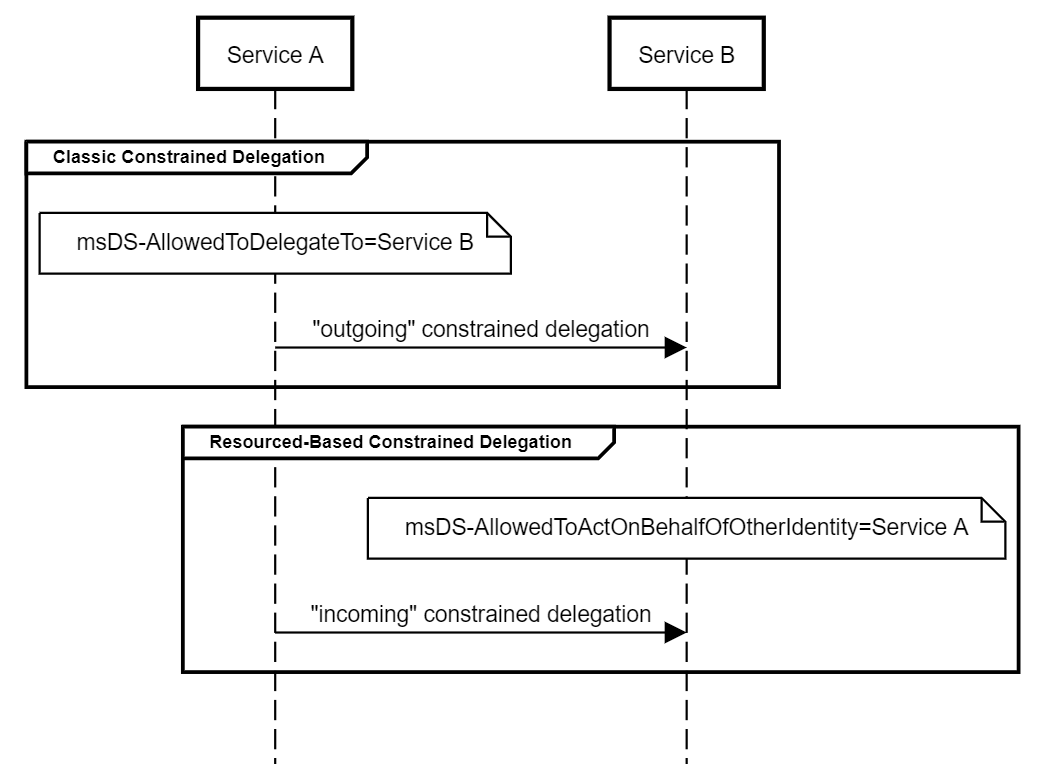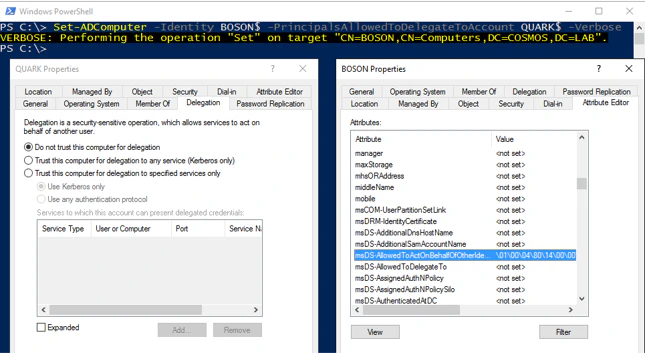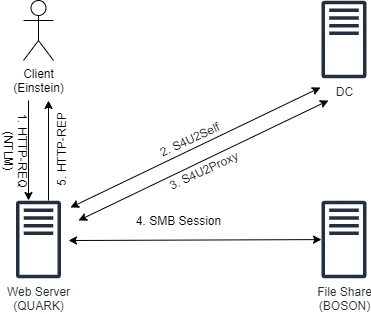Attacking Kerberos: Resource Based Constrained Delegation
Now that we are done with Unconstrained and Constrained Delegations, it is time for the finale. In this blog we’ll discuss Resource Based Constrained Delegation (RBCD).
How it works?
Major restriction with Unconstrained or Constrained Delegation is that we require a user with SeEnableDelegation privileges to set it up. This privilege is usually restricted to (and it should be) administrative accounts like Domain Admins. This makes sense since delegation is such a sensitive configuration. But it isn’t very convenient to ask Domain Admins to configure it every time someone, say a web developer, needs it. Classic example of security and usability being two opposite ends of spectrum.
So to ease some of this pain, Microsoft came up with a different kind of delegation that any user can set up. Catch here is that this delegation is set on the resource that is on the receiving end of delegation, not on the resource that wants to delegate to other resources.

Any user that has Write access on a resource can set that resource with RBCD, can tell that resource “dude, you can receive delegated credentials from resource X, Y and Z”. Say we want to set up delegation from machine QUARK$ to BOSON$. Instead of setting up anything on QUARK$ like we would with Constrained Delegation, we would set it in BOSON$. The msDS-AllowedToActOnBehalfOfOtherIdentity attribute stores the value of resources that are allowed to delegate to that machine.

Traffic Analysis


Step 1: Client send an NTLM-authenticated HTTP request to QUARK$.
Step 2: QUARK$ sends S4U2Self request to KDC. But, since TRUSTED_TO_AUTH_FOR_DELEGATION is not set on QUARK$, KDC would return the TGS without the Forwardable flag.
Step 3: QUARK$ would send S4U2Proxy request with non-forwardable TGS anyway. KDC would notice the TGS doesn’t have forwardable flag. So it will check the msDS-AllowedToActOnBehalfOfOtherIdentity attribute for BOSON$ and find QUARK$. KDC would thus accept the request and issue TGS to CIFS/BOSON.
Step 4: The SMB session would be established and the execution continues
Abusing Resource Based Constrained Delegation
To abuse RBCD, there are primarily two pre-requisites:
- An account (
COSMOS\Hawkingin our example) withWritepermissions overmsDS-AllowedToActOnBehalfOfOtherIdentityattribute of computer object you want to target (BOSON$here). - Credentials of account which has a SPN (
QUARK$in our example). If we don’t own such account, we can create a Machine Account withPowermad.ps1.
Here’s how attack would proceed:
- First, we will verify if user
HawkinghasWritepermissions overBOSON$or not. - Then we will add
QUARK$inmsDS-AllowedToActOnBehalfOfOtherIdentityattribute ofBOSON$. - We will then perform s4u using Rubeus to get TGS to
BOSON$and Pwn!
The video below demostrates the attack. We first verify using Bloodhound output that user Hawking has Write access over BOSON$. We can also do this using PowerShell, the commands to do so are shown in the video. Then we setup RBCD from QUARK$ to BOSON$, and verify that. Then finally we run the Rubeus command that fetches the CIFS/BOSON TGS, and replaces it with HTTP/BOSON so that we can run Invoke-Command over BOSON$.
Here’s the script I’ve used in the demo:
Further Reading
Related Posts
Attacking Kerberos: Constrained Delegation
In the last blog, we discussed Unconstrained Delegation in detail. We also saw how dangerous Unconstrained Delegation can get. Unconstrained Delegation was the very first implementation of Delegations, introduced back in Windows Server 2000.
Read moreAttacking Kerberos: Unconstrained Delegation
So we are going to talk about Unconstrained Delegation in this blog. I have already covered a small introduction to Delegations and the Kerberos concepts you’d need to understand it in an introduction blog.
Read moreIntroduction to Active Directory Delegations
I spent past few months working on Cybernetics lab from HTB. Awesome labs, thoroughly enjoyed it, tons of things to learn.
Read more